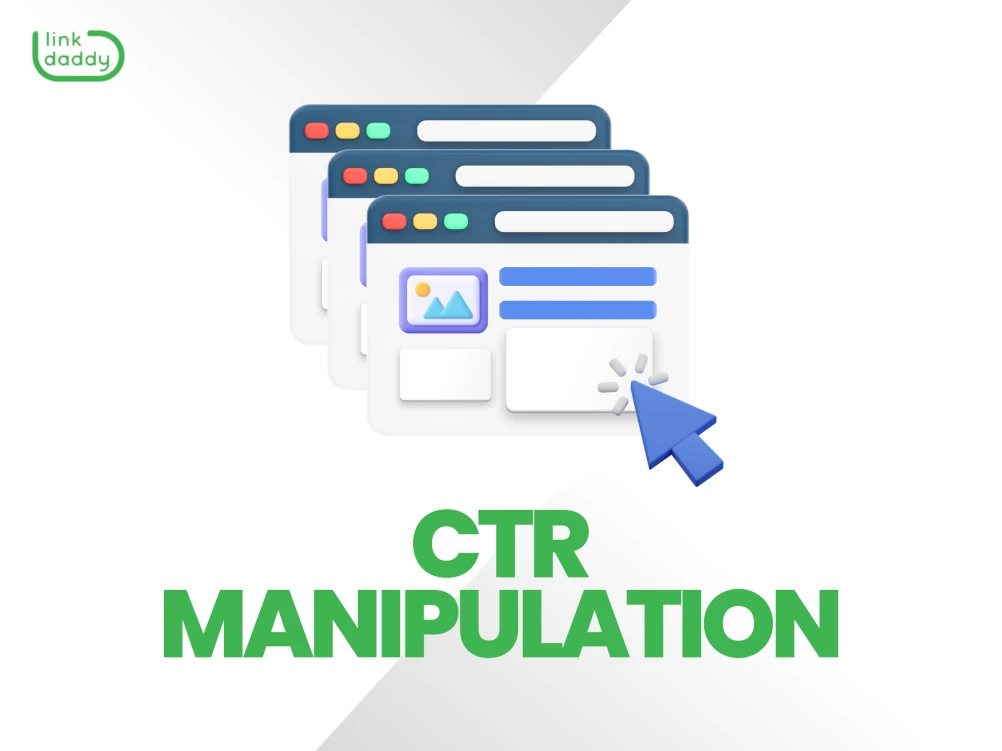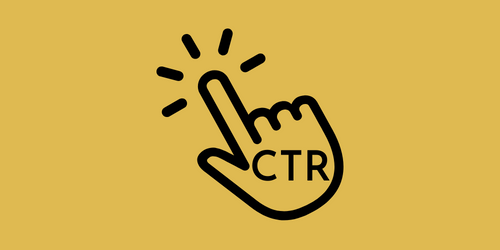The Function of CTR Adjustment in Modern Search Engine Optimization
CTR manipulation, a controversial method in modern-day search engine optimization, raises essential inquiries regarding its efficacy and ethical effects. As algorithms develop to prioritize individual experience, the lure to artificially increase click-through prices continues. The challenges of such techniques impend huge, risking charges and reputational damages (CTR Manipulation Service). The argument around the function of CTR manipulation fit search visibility highlights the delicate equilibrium between short-term gains and lasting sustainability in the ever-evolving landscape of digital marketing.
Understanding CTR and Its Relevance
CTR, or Click-Through Price, is a vital metric in the world of Look Engine Optimization (SEARCH ENGINE OPTIMIZATION) that gauges the percent of users who click on a certain link out of the overall number of users that see it. Recognizing CTR is vital for search engine optimization professionals as it gives insights into the effectiveness of a certain link or advertisement. A high CTR suggests that the link is pertinent and appealing to individuals, which can favorably affect an internet site's rankings in search engine results web pages.
By examining CTR data, marketing professionals can evaluate the charm of their web content, keywords, and targeting methods. In essence, CTR is a basic statistics that influences individual involvement, website web traffic, and inevitably, the success of Search engine optimization initiatives.
Elements Influencing CTR in Search Engine Optimization
When reviewing the efficiency of a web site or online campaign, it is crucial to consider different elements that can influence individual involvement and Click-Through Rate (CTR) in Browse Engine Optimization (SEO) The title tags and meta summaries of a website play a considerable role in drawing in users to click on the link in online search engine outcomes. Relevant and compelling titles and descriptions can raise the chance of customers clicking with to the web site.

In addition, the usage of appropriate keywords in titles, meta summaries, and content can also affect CTR. Recognizing the search intent of users and lining up the material with their questions can enhance click-through rates and overall SEO efficiency.
Methods for Improving CTR
To enhance Click-Through Fees (CTR) in Search engine optimization, carrying out effective approaches is paramount. Furthermore, making use of power words, numbers, and unique characters can make the search results stand out and draw in more clicks.
Moreover, developing premium and interesting material is vital for boosting CTR. Giving valuable information, addressing individual inquiries, and providing content in an enticing format can motivate individuals to click via to the website. Utilizing multimedia elements like video clips and images can also make the search results page much more attractive and rise CTR. Leveraging social evidence, such as testimonials, testimonials, or situation studies, can build reputation and trust, inevitably leading to greater click-through prices.

Dangers and Moral Factors To Consider
One of the key risks of CTR control is the possibility for penalties from search engines. Browse engines like Google have advanced algorithms that can discover abnormal spikes in CTR, leading to prospective penalization and a drop in rankings. Furthermore, controling CTR can result in an inadequate customer experience by tricking users into clicking on web links that may not be appropriate to their search questions.

Assessing the Influence On Positions
In assessing the influence of Click-Through Price (CTR) control on online search engine rankings, it comes to be evident that the technique can have both instant and lasting consequences for a web site's exposure and efficiency. Artificially blowing up CTR may lead to a short-term boost in rankings as search engines analyze high click-through rates as a signal of importance and appeal. Nevertheless, if the increased CTR is not backed by authentic individual engagement, search algorithms can find this control, causing penalties such as lowered rankings or perhaps removal from search results page.
Over the lengthy term, the effects of CTR control can be extra severe. Internet search engine like Google continuously refine their formulas to battle fraudulent methods, consisting of monitoring customer habits after official statement they click on a search results page. If a web site continually falls short to meet individual expectations post-click, it can experience a decline in rankings despite any initial gains from CTR adjustment. Inevitably, concentrating on enhancing organic CTR via authentic, engaging material and individual experience is important for sustainable search engine optimization success.
Conclusion
In final thought, while CTR control might supply temporary benefits in search engine optimization, it positions significant dangers to trustworthiness and find out here long-lasting success. Internet search engine like Google are increasingly skillful at identifying such tactics, resulting in fines and lowered count on from individuals. CTR Manipulation Press Release. Sustainable SEO techniques, focusing on authentic material and individual engagement, are essential for maintaining reliability and achieving lasting success in search rankings
CTR, or Click-Through Price, is a vital statistics in the world of Search Engine Optimization (SEARCH ENGINE OPTIMIZATION) that measures the percent of customers that click on a particular web link out of the complete number of customers that see it. A high CTR indicates that the web link is engaging and pertinent to users, which can favorably influence a web site's rankings in search engine results web pages.
When examining the efficiency of a site or on the internet project, it is vital to consider different elements that can influence customer involvement and Click-Through Price (CTR) in Search Engine Optimization (SEARCH ENGINE OPTIMIZATION) In addition, manipulating CTR can result in a poor customer experience by tricking individuals into clicking on web links that might not be appropriate to their search inquiries. If important site the enhanced CTR is not backed by authentic customer engagement, search algorithms can identify this control, resulting in penalties such as lowered rankings or even removal from search results.